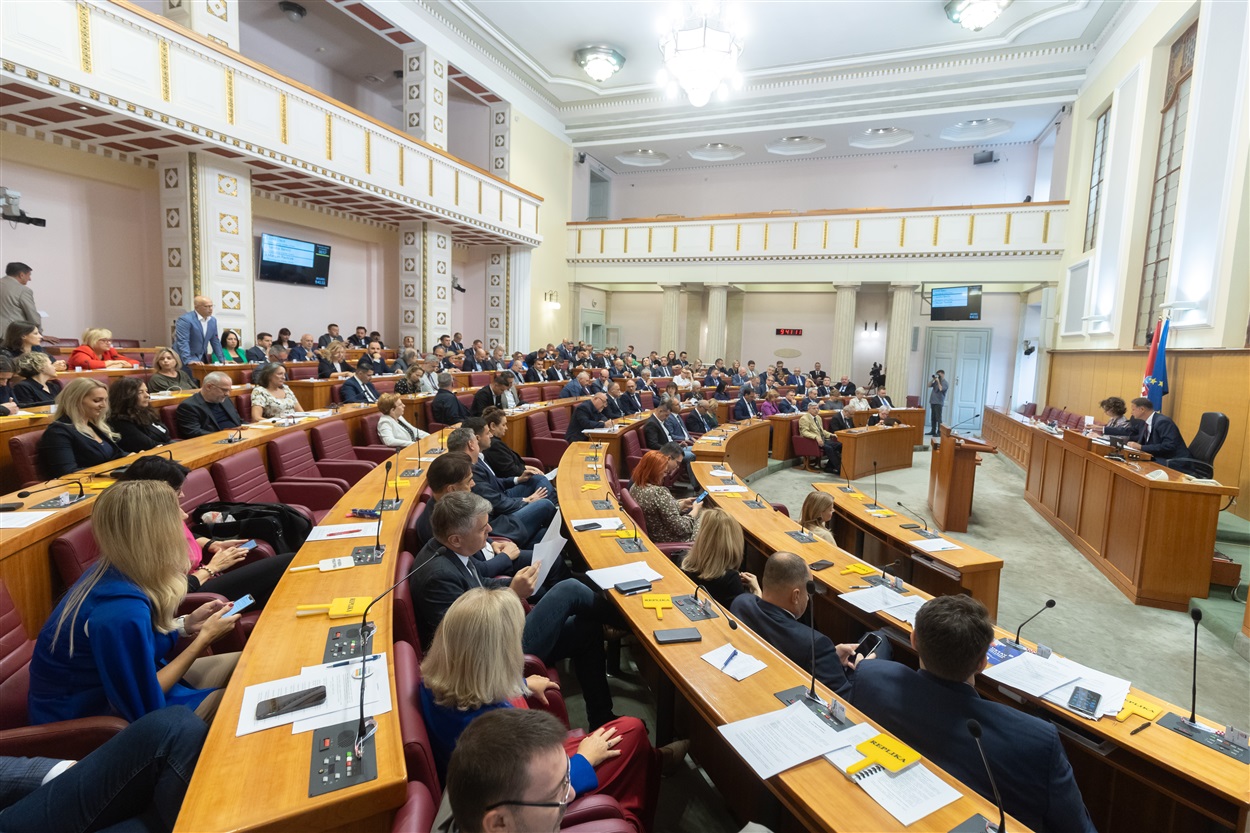
Zagreb - Finance Ministry State Secretary Tereza Rogić Lugarić told MPs on Monday that four multinational corporations were registered in Croatia and that they would fall under the proposed bill on the minimum global corporate tax.
"This bill does not aim at those four corporations," she said, adding that under the criteria envisaged by the bill, they would be covered by it "for a start", but that the list was not final and that it did not mean more corporations would not be included.
Rogić Lugarić made the statement during a debate on a bill that transposes into national law the EU Directive on ensuring a global minimum level of taxation for multinational enterprise groups and large-scale domestic groups in the EU, which is part of the OECD's global tax reform.
The purpose is for each MNC group to pay effectively at least 15% tax on its income in the country where it operates, but taking all of its associated entities into account. The bill refers to MNCs that in their consolidated reports have so-called qualifying income, that is, revenue exceeding €750 million.
Both the MPs of the ruling majority and the Opposition supported the bill, but the Opposition questioned its implementation.
MP: Will the law include Uber, Bolt...
Will this law also include multinational corporations that earn a portion of their revenue in Croatia but some of that money never enters Croatia's tax system, We Can! MP Bojan Glavašević wanted to know, mentioning in that context Uber, Bolt and Glovo.
Even though he believes that the law is a good "first step", Glavašević does not think that it will provide an answer to some phenomena such as Amazon, which is not registered in Croatia but makes significant profits.
Some corporations do not meet the standards of workers' rights that belong to the European acquis so the notion of their taxation should be bolder, he said.
Zvane Brumnić of the Social Democrats added that at least some 50 corporations earn an income that is not insignificant by selling their products and services in Croatia, wondering if they would pay taxes in Croatia.
Booking and Airbnb operate and earn huge profits in Croatia. Does that mean that a part of their income will have to be taxed in Croatia, Hrvoje Zekanović, an MP of the ruling majority, also wanted to know.
Marijana Puljak (Centre) said the law was a step towards aligning the national tax system with international standards, the point being to make sure large corporations pay a just and adequate amount of tax and to prevent the practice of transferring income to tax havens.
Bridge MP Zvonimir Troskot believes the law makes sense if its purpose is to collect revenue and for corporate income not to be transferred to the Cayman Islands and other tax havens.
"We should be aware that this is just a demonstration exercise of similar taxes that could happen at the EU level, such as the taxation of CO2 emissions, which is the first step towards a federal EU, that is, a fiscal union, with which Bridge does not agree because that means the loss of sovereignty," he said.
MPs welcomed proposals for the parliament to confirm a convention between the Croatian and Egyptian governments and a treaty between Croatia and Cyprus on the avoidance of double income and property taxation and the prevention of tax fraud and tax evasion.